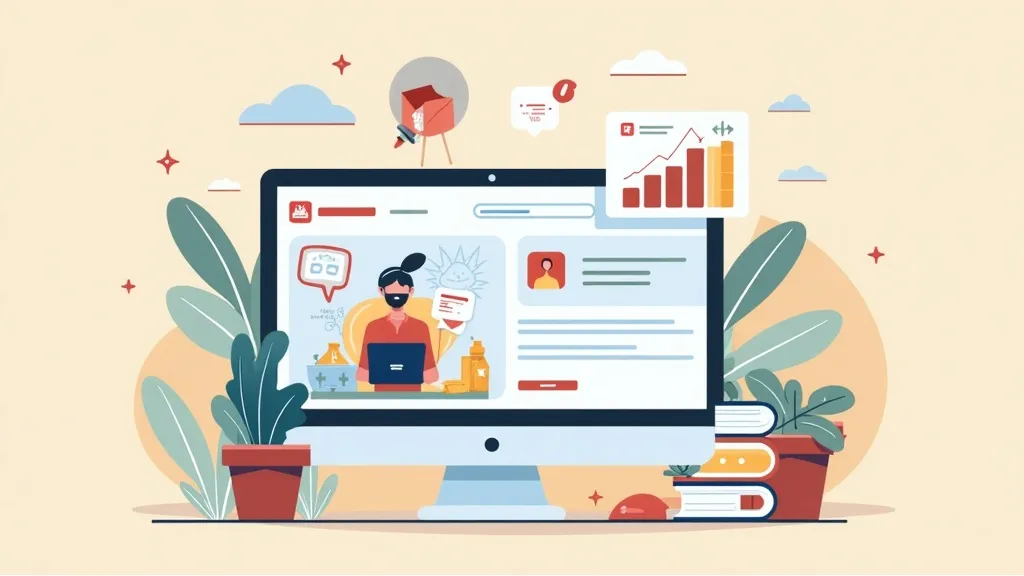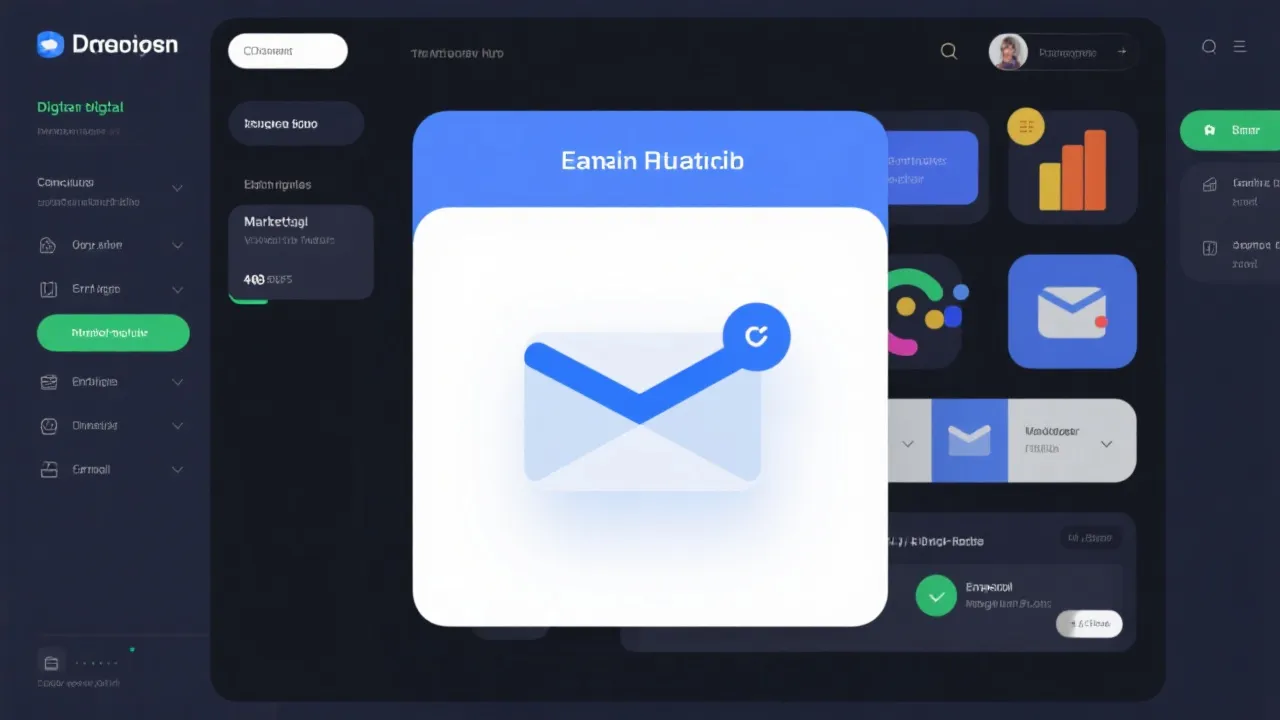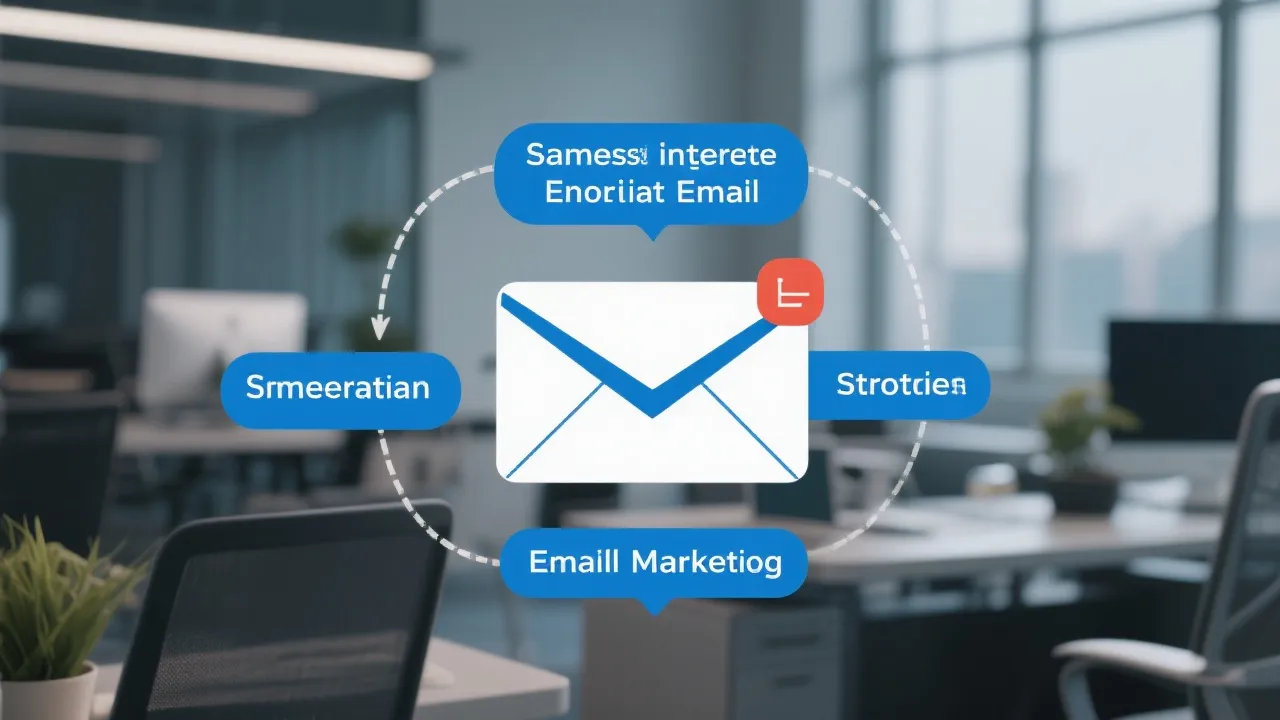Harnessing Shopify Marketing Automation
This in-depth article unravels the potential of Shopify marketing automation, discussing how businesses can leverage these streamlined processes to bolster their e-commerce strategies. Shopify offers a robust platform that integrates numerous tools to automate marketing tasks, allowing merchants to scale efficiently and maximize their marketing efforts. By implementing these tactics, sellers can focus more on core operations and less on repetitive scheduling and promotions.

Understanding Shopify Marketing Automation
In today's competitive e-commerce landscape, leveraging automation tools is vital for efficiency and growth. Shopify Marketing Automation offers a powerful suite of solutions that enables businesses to automate their marketing strategies seamlessly. These tools help entrepreneurs to manage marketing campaigns, personalize customer interactions, and analyze data trends without manual intervention. The goal is to reduce human labor in marketing processes, allowing businesses to focus on growth and innovation. As digital marketing continues to evolve, integrating automation becomes paramount to staying relevant and competitive in a saturated market.
The advent of automation is reshaping how brands operate. It allows for faster execution of tasks, ensuring timely engagement with customers whether through email, SMS, or social media platforms. By automating repetitive tasks, businesses can allocate more resources to creative and strategic initiatives that drive long-term growth. Moreover, automation not only reduces overhead costs but also enhances accuracy, minimizing the likelihood of human error, thereby leading to a more streamlined customer experience.
The Core Components of Shopify's Automation
Shopify Marketing Automation encompasses several features designed for comprehensive e-commerce management:
- Email Campaign Automation: Craft and schedule newsletters to engage customers during optimal times. By using data-driven insights, businesses can time their emails to hit inboxes when recipients are most likely to engage, improving open and conversion rates.
- Customer Segmentation: Tailor marketing efforts by segmenting the audience based on purchasing behavior and interests. This allows for targeted marketing efforts that resonate more effectively with specific demographics, yielding higher engagement rates and customer satisfaction.
- Sales Notifications and Pop-Ups: Strategically placed pop-ups can increase customer conversions and cart value. With tools that prompt users at pivotal moments during the shopping experience, such as reminding them of items left in their cart, businesses can significantly reduce cart abandonment rates.
- Product Recommendations: Personalized product suggestions based on customer behavior and history. This not only enhances the shopping experience but also drives additional sales by showcasing items that fit a customer's preferences and previous purchases.
The Benefits of Automating Your Marketing
Automating marketing processes releases the potential for substantial gains:
- Efficiency: Automation reduces the time spent on repetitive tasks, affording up resources for strategic planning. As operations become more efficient, teams can focus on creative campaigns rather than administrative tasks.
- Scalability: Easily scale marketing efforts as your business grows without proportionate increases in workload. Automation tools can handle larger volumes of tasks and interactions, allowing businesses to expand without drastically increasing headcount.
- Personalization: Automation tools allow for more targeted customer messaging, enhancing customer experience and loyalty. Personalized communications lead to higher customer retention and stronger brand loyalty.
- Data Utilization: Real-time data analytics aids in refining strategies for better ROI. The insights gained can uncover trends, enabling businesses to pivot their strategies effectively to meet market demands.
- Cost-Effectiveness: Investing in automation tools can significantly lower operational costs. By optimizing processes and reducing reliance on manual labor, businesses can allocate budgetary resources towards growth initiatives.
Effectively Implementing Shopify Marketing Automation
Success in marketing automation requires a strategic approach:
- Define Goals: Clearly outlined objectives guide the deployment of automation tools effectively. Whether the goal is increasing revenue, improving customer retention, or enhancing brand awareness, clear metrics will drive strategy.
- Select Features: Choose the automation features that align with your business needs. Different businesses have diverse requirements, so understanding which tools are essential is critical to success.
- Integrate Seamlessly: Ensure all automation tools are integrated efficiently within your existing operations. This might involve syncing customer data across platforms, combining CRM with marketing automation, and ensuring communication flows smoothly across all touchpoints.
- Monitor and Adapt: Regularly review performance metrics to adapt strategies as necessary. A/B testing, customer feedback, and analyzing campaign success will help businesses remain agile and responsive to market needs.
- Train Your Team: Ensure that your team is well-trained on the new tools and processes. Familiarity with automation systems will enhance performance and reduce confusion among staff.
- Focus on Customer Experience: Always keep the customer experience in mind when implementing automation. The end goal should be to create a seamless and enjoyable shopping experience that meets customer expectations.
Comparing Shopify's Marketing Automation Tools
| Tool | Functionality | Advantages |
|---|---|---|
| Klaviyo | Email marketing & segmentation | Deep integration with Shopify, advanced segmentation, robust analytics |
| Mailchimp | Email marketing platform | Ease of use and comprehensive templates, ideal for beginners |
| Omnisend | Omni-channel marketing automation | Suited for SMS and email campaigns, comprehensive analytics, better customer journey mapping |
| Privy | Conversion rate optimization | Effective pop-up design and engagement tools, helpful for growing email list quickly |
| Google Analytics | Website and marketing performance analytics | In-depth analysis of traffic sources and conversion rates, widely used tool for data-driven decisions |
| Zapier | Workflow automation | Integrates multiple tools and apps, automates tasks across platforms for greater efficiency |
Shopify Marketing Automation Top Practices
To maximize the impact of marketing automation, consider the following top practices:
- Continuous Testing: Regularly A/B test campaigns to determine what resonates best with your audience. This will help refine messaging and delivery tactics over time.
- Personalized Content: Use automated tools to deliver content that is highly relevant to individual customer interests. Tailored recommendations not only improve the relevance of your messaging but also enhance customer satisfaction and encourage repeat business.
- Nurture Leads: Engage leads with automated response systems and drive them through the sales funnel. This includes setting up drip campaigns that educate potential customers about your products or services over time.
- Utilize Customer Feedback: Actively seek and incorporate customer feedback into automation strategies. Understanding what customers like or dislike can guide the content and offers sent out.
- Prioritize Mobile Optimization: Given the increasing reliance on mobile devices for online shopping, ensure all automated marketing campaigns are mobile-friendly. Responsive design enhances accessibility and engagement.
FAQs
What is Shopify Marketing Automation?
Shopify Marketing Automation involves tools and features that facilitate the automatic scheduling, execution, and monitoring of marketing campaigns. It includes email, SMS, and social media marketing strategies to improve customer engagement and operational efficiency.
How can marketing automation benefit my e-commerce store?
Automation helps streamline processes, improves customer engagement and personalization, and increases ROI by optimizing marketing efforts with less manual intervention. It allows businesses to reach targeted customers effectively while managing resources efficiently.
Is there a learning curve for these Shopify tools?
While there is a learning curve, Shopify provides ample resources, including tutorials and community support, to ease the transition and facilitate efficient implementation. In addition to official resources, many user-led forums and communities offer advice and sharing of best practices.
Can I customize the automated marketing strategies specific to my brand?
Yes, Shopify allows for significant customization, enabling your marketing efforts to align closely with your brand identity and customer expectations. Customization features include personalized messaging, segmentation strategies, and adaptive workflows based on customer interactions.
Conclusion
Embracing Shopify Marketing Automation can transform your business by optimizing marketing efficiency, enhancing customer interaction, and fostering business growth. This strategic leap into automation presents an opportunity to leverage technology in engaging and retaining customers, ultimately boosting sales performance. Businesses that invest in these intelligent tools gain a competitive edge, setting themselves apart in the bustling e-commerce marketplace. By continually refining their marketing strategies through automation, brands can foster deeper relationships with customers and respond dynamically to changing market conditions.
Future Trends in Shopify Marketing Automation
Looking forward, several emerging trends in marketing automation will shape the way businesses utilize Shopify tools:
- Artificial Intelligence (AI) Integration: AI technologies are set to become a cornerstone of marketing automation. Predictive analytics will allow for even more precise customer segmentation and personalized content delivery. AI can analyze vast data sets to predict customer preferences and behavior, enabling businesses to craft highly personalized experiences that drive conversions.
- Enhanced Customer Data Platforms: As the need for effective customer data management grows, Shopify and other e-commerce platforms will likely integrate more sophisticated customer data platforms (CDPs). These systems will help consolidate and manage customer data across different channels, facilitating better-targeted marketing initiatives.
- Voice Commerce: With the rise of smart speakers and voice-activated technology, optimizing marketing automation tools for voice search will become crucial. Businesses may need to rethink their SEO and marketing approaches to align with voice searches, ensuring that their product information is accessible and optimized for completion through voice commands.
- More Omni-Channel Integration: The future of marketing automation will involve an even greater focus on omni-channel strategies. Ensuring that customers have a seamless experience regardless of the channel they interact with will be vital for overall brand success. Automation systems must be equipped to handle communications across platforms, responding in real-time to customer inquiries and behavior.
- Increased Focus on Data Privacy: As consumer awareness around data privacy grows, marketing automation must evolve to respect user data preferences completely. Businesses must be transparent about data collection practices and provide customers with choice in how their information is used, potentially impacting marketing strategies significantly.
As we navigate these trends and advancements in technology, businesses that adapt quickly will not only enhance their operational capabilities but also serve their customers better, thus fostering loyalty and improving overall business outcomes. The future holds immense potential for those willing to embrace the changing dynamics of e-commerce and marketing automation.










